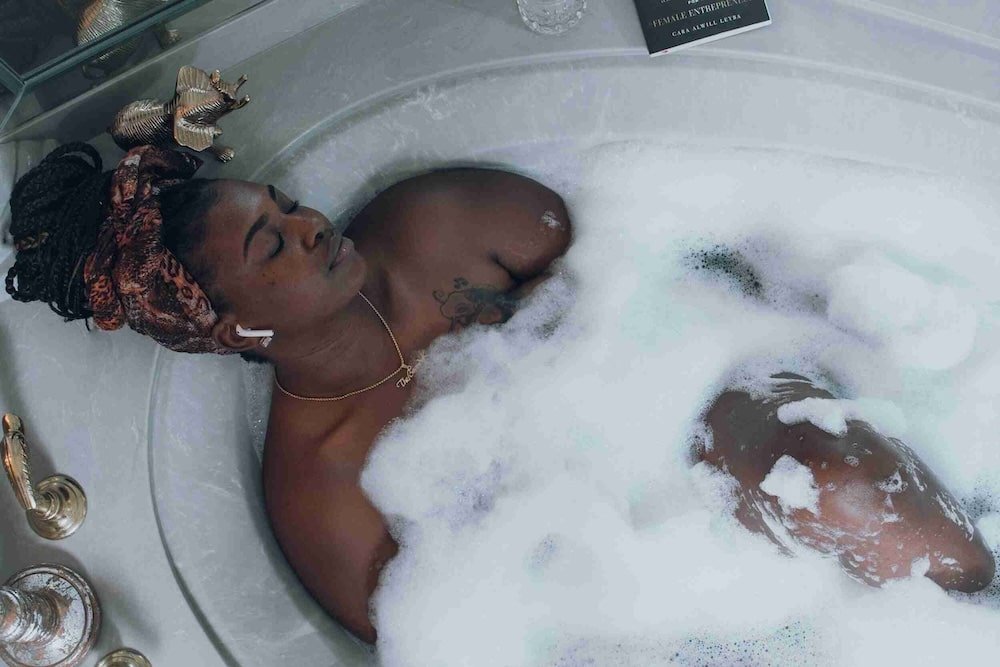10 simple self-care techniques for managing anxiety
Anxiety is a common mental health issue that affects millions of people worldwide. It can manifest in many different forms, such as panic attacks, generalized anxiety disorder, social anxiety, and more. While there are many different approaches to managing anxiety, one effective way to do so is through self-care. Here are ten simple self-care techniques that can help you manage your anxiety.
Practice deep breathing
Deep breathing is a simple yet effective way to reduce anxiety. When you feel anxious, take a deep breath in through your nose and hold it for a few seconds, then exhale slowly through your mouth. Repeat this process several times, focusing on your breath and letting go of any tension or worries.
2. Get enough sleep
Lack of sleep can exacerbate anxiety symptoms, so it's essential to get enough restful sleep each night. Establish a regular sleep schedule, avoid caffeine and electronics before bedtime, and create a relaxing sleep environment.
3. Eat a healthy diet
A healthy diet can help reduce anxiety by providing your body with the nutrients it needs to function optimally. Focus on eating whole foods, such as fruits, vegetables, lean proteins, and whole grains, and limit your intake of sugar, processed foods, and alcohol.
4. Exercise regularly
Exercise is a natural stress reliever and mood booster. Aim for at least thirty minutes of moderate exercise each day, such as brisk walking, jogging, cycling, or yoga. Find an activity you enjoy and make it a part of your daily routine.
5. Practice mindfulness
Mindfulness is a technique that involves being present and aware of the current moment without judgment. It can help you reduce stress, improve your mood, and manage anxiety. Try practicing mindfulness techniques, such as meditation, deep breathing, or mindful walking.
6. Connect with others
Social support is essential for managing anxiety. Connect with friends, family, or a support group, and share your feelings and experiences. It can help you feel less alone and provide you with a sense of belonging.
7. Set realistic goals
Setting realistic goals and breaking them down into manageable steps can help you feel more in control and reduce anxiety. Focus on achievable goals that align with your values and priorities, and celebrate your progress along the way.
8. Practice self-compassion
Self-compassion involves treating yourself with kindness, understanding, and acceptance. It can help you reduce self-criticism and self-doubt, which can contribute to anxiety. Practice self-compassion by being kind to yourself, acknowledging your strengths and areas for growth, and avoiding negative self-talk.
9. Create a self-care routine
Establishing a self-care routine can help you prioritize your mental and physical health and reduce anxiety. Create a list of self-care activities that you enjoy, such as taking a bath, reading a book, or going for a walk, and incorporate them into your daily routine.
10. Seek professional help
While self-care techniques can be helpful, they may not be sufficient for everyone. If your anxiety is severe or interfering with your daily life, consider seeking professional help from a therapist or mental health provider.
Anxiety is a complex and challenging issue that requires a multifaceted approach to manage effectively. Incorporating these ten simple self-care techniques into your daily routine can help reduce anxiety symptoms and improve your overall well-being. Remember, self-care is not selfish, and it's essential to prioritize your mental and physical health to lead a fulfilling life.
Your battle with anxiety doesn't have to be solitary. Contact us today for a free 15-minute consultation with a psychotherapist. Let's delve into how we can assist you in managing anxiety and reclaiming a sense of calm and balance in your life. Reach out now because your well-being is our priority.

